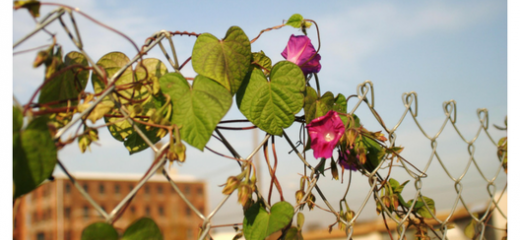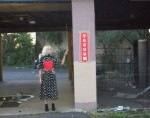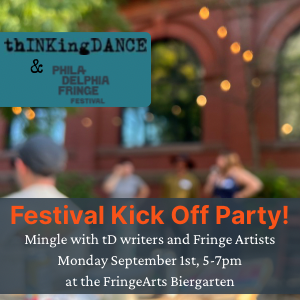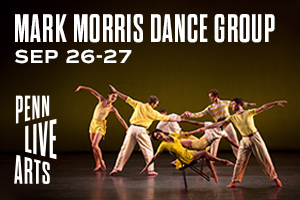
Women on the Border of Freedom
by Nicole Bindler
tD writer Nicole Bindler interviews Hariprasad Kowtha, the Program Director and Joker/Facilitator of Borderlands, with Philadelphia Theatre of the Oppressed, to be presented at this year’s Fringe Festival. Kowtha facilitates an additional Theatre of the Oppressed workshop series called “Unpacking Race,” and is one of the few South Asian men teaching yoga in Philadelphia.
Nicole Bindler: What brought you to Theatre of the Oppressed (T.O.), and can you share some basic principles of the practice?
Hariprasad Kowtha: I first attended a T.O. Philly workshop on Image Theater at the Rotunda in 2014. To be honest, though, I began using the principles of Theatre of the Oppressed long before I knew it as its own particular art form. When I was in high school in Scottsdale, Arizona, I was one of the only students from a South Asian background among a sea of upper class, college-bound white students. Because of my interest in performance and my budding passion for social justice work, I began leading workshops with Anytown Arizona, a non-profit then affiliated with the National Conference for Community Justice (NCCJ). As a counselor at the flagship sleepaway leadership camp, my colleagues and I devised theatre pieces that introduced the themes of the day (i.e. family, community, re-entry) and even used sociodrama models such as the family sculpture to visibilize students' embodiment of their family structures.
The principles of Theatre of the Oppressed come directly from the Pedagogy of the Oppressed by Paolo Friere by way of Agosto Boal. Boal dynamized Friere's theories in a way that allowed those who were surviving under oppressive regimes or within fringe environments to access those tools of survival as a means of fomenting resistance. The idea of Theatre of the Oppressed is that those who face oppression already have the tools to overcome it, so through group theatre exercises and through the help of a facilitator, also known as a joker, participants can collectively overcome systemic oppression. Boal reminded participants often that workshops were merely practice for the actual daily performance of resistance in the streets, in relationships, at work, and in other dimensions of daily life.
NB: What are some highlights from the book, Borderlands/LaFrontera: The New Mestiza by Gloria Anzaldúa?
HK: I'll give you a couple quotes from her book that founded our work Borderlands with T.O. Philly:
“Cradled in one culture, sandwiched between two cultures, straddling all three cultures and their value systems, la mestiza undergoes a struggle of flesh, a struggle of borders, an inner war … The coming together of two self-consistent but habitually incompatible frames of reference causes un choque, a cultural collision.”
“The new mestiza copes by developing a tolerance for contradictions, a tolerance for ambiguity...She has a plural personality, she operates in a pluralistic mode –– nothing is thrust out, the good the bad and the ugly, nothing rejected, nothing abandoned. Not only does she sustain contradictions, she turns the ambivalence into something else.”
“I will no longer be made to feel ashamed of existing… I will have my serpent's tongue –– my woman's voice, my sexual voice, my poet's voice. I will overcome the tradition of silence.”
NB: I see you offered a workshop of the same title with the description:
Philadelphia Theatre of the Oppressed is exploring the borderlands between work, home, languages, nation-states, and neighborhoods. Using the tools of Image Theatre — movement and stillness, acting and witnessing, observing and storytelling — participants will dive deeply into a study on personal boundaries and the intersections that lie in between.
How does your T.O. teaching practice inform your theater creation process?
HK: The theatre creation process runs in tandem with the workshop teaching practice. They come from the same theoretical framework, and even the same movement practice. The theatre devising practice, however, goes deeper. In our development for the piece, we are working through severe contradictions that are present in each of these women's lives (and collectively as previously incarcerated women) that make each of the formerly incarcerated women who are participating in the project human. An example of such a contradiction is when a mother is speeding to school to drop off her kids and then to work: she is driving quite fast, almost recklessly. Then, she hits a red light and stops suddenly. Her arm still reaches out, almost instinctively, to protect her children. This is just one contradiction that a mother might embody throughout her busy day.
We use these concepts of contradictions that occur upon re-entry from the carceral state into the old neighborhood, or the halfway house or the recovery center to explore the many obstacles that exist for these former citizens returning to a 'free' life in the United States. The women also explore collective art creation, collective organizing, and collective struggle to improve the lives of those women yet to return to life in Philadelphia from the prison system.
The concept of this forum theatre piece is to perform in front of an audience who will then come up with –– and attempt to use strategies they themselves come up with –– to embody the lives of these brave and often ignored women/mothers/daughters/sisters/aunts/neighbors/employees/caretakers/lovers. By shining a light on the women's ability to survive, and even thrive, in a system designed to alienate them, Borderlands intends to uplift the entire Philadelphia community.
NB: Who are the formerly incarcerated women in the piece? What is your relationship to them, and what role did they play in the devising process?
HK: The women in this piece come from various agencies and nonprofits centering the needs of formerly incarcerated women in the Philadelphia community. From the Philadelphia Paper Co-op and Mural Arts art show in North Philadelphia in July, Faith Bartley is an artist and a performer. Bambi comes to us from The Center for Returning Citizens. Jojuan comes to us from Mama's Bail Out –– a project from No 215 Jail Coalition. We have a couple more women who have not officially signed on yet, so I am unable to share their names at this time.
The women are the devisers of this piece of theatre. I am leading them through a series of games, exercises, and scene work to create a collaborative piece of work exploring their stories of reentry, their obstacles to maintaining a full life outside of prison, and the difficulty in dealing with social service organizations. The result is a funny, serious, thought-provoking, and honest portrayal of 'everywoman' living in the borderland between incarceration and reentry.
NB: What is Paloma Irizarry's role in the project? Are there any other collaborators who you'd like to mention?
HK: Paloma is the Artistic Director of the piece. She is there to help the women tell their story in a way that will affect the audience. She is also helping to design the simple set and help the women with basic tools of performance, such as projecting their voices, facing their bodies toward the audience, and underscoring subtleties that might otherwise be lost.
Morgan Andrews, along with Philadelphia Theatre of the Oppressed, is producing the piece –– and assisting with promotions and outreach.
NB: Is there anything in “Borderlands” about or inspired by your personal experience?
HK: I often find myself living in between realities. I am the son of immigrants who moved from India in the early 70s, like many other upper caste, upper class, highly-educated South Asian immigrants of the day. When I was young, I believed that every child I went to school with went home and spoke a different language (other than English) and ate foods that were different than what was available at school at lunchtime.
Recently, my partner Natasha and I developed and produced Mustard Seed Film Festival, the first and only South Asian film festival in Philadelphia. We showcased contemporary, socially-engaged narratives by women filmmakers and LGBTQ filmmakers that trace their roots to the South Asian subcontinent.
While teaching yoga to women who were living in homeless shelters, and to teens who were incarcerated, I learned that another culture exists in the margins of society, a culture that is largely ignored. In developing the concept for Borderlands I found that I was curious about these immigrant narratives. In the process of developing the story, I have gained an immense amount of respect for my parents in traversing realities both within and outside of the United States. I find so much in common between these migration narratives, and so much in contrast.
NB: What else do you want people to know about this project?
HK: We are almost sold out for our opening show on Friday, September 8th at the Asian Arts Initiative’s “Hurry Up and Wait” Opening Reception at 8pm.
We have added another free show at Studio 34 on Friday, September 15th at 7:30pm! Donations are welcomed.
Borderlands, Philadelphia Theatre of the Oppressed, Asian Arts Initiative, September 8.
By Nicole Bindler
September 7, 2017









